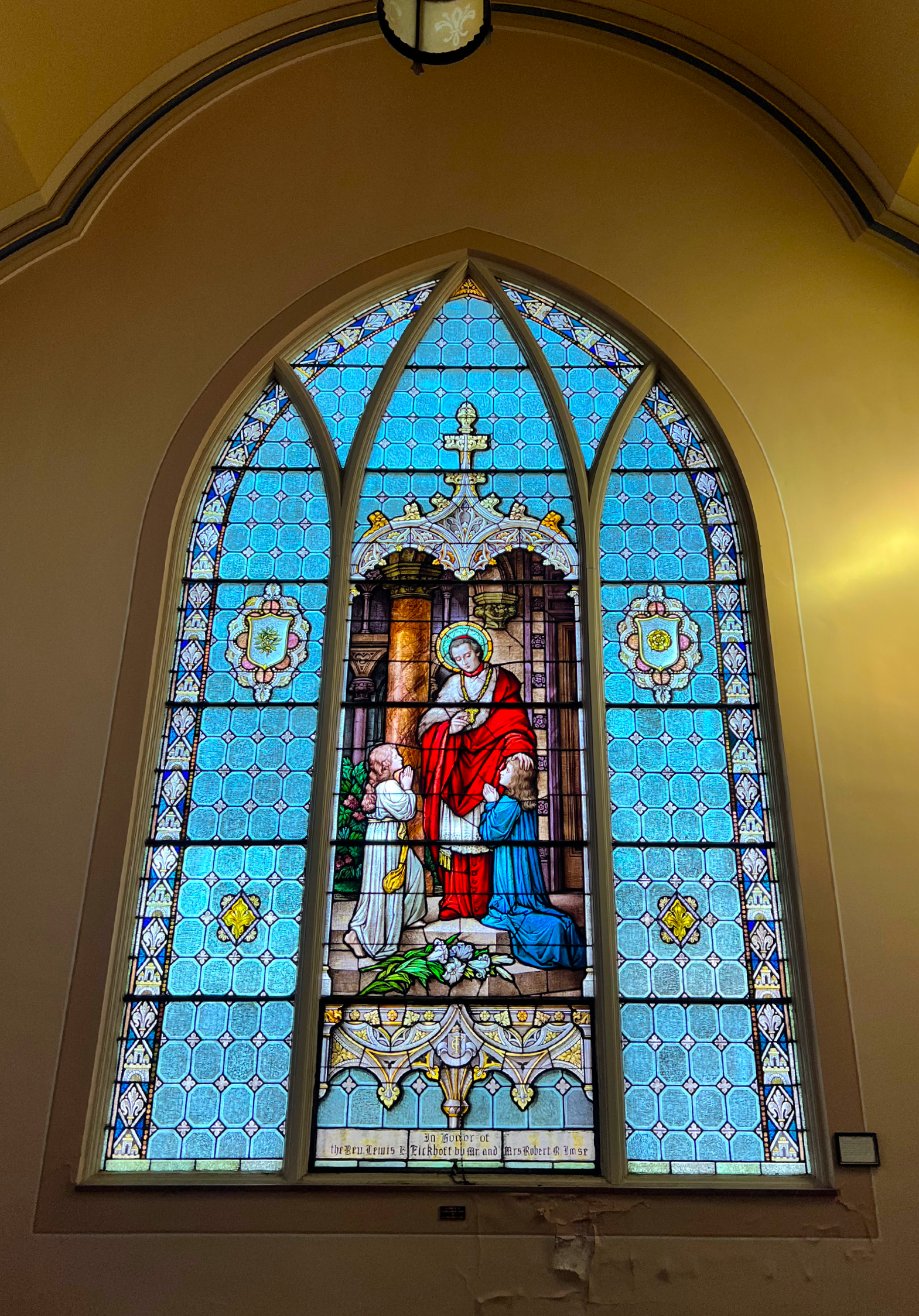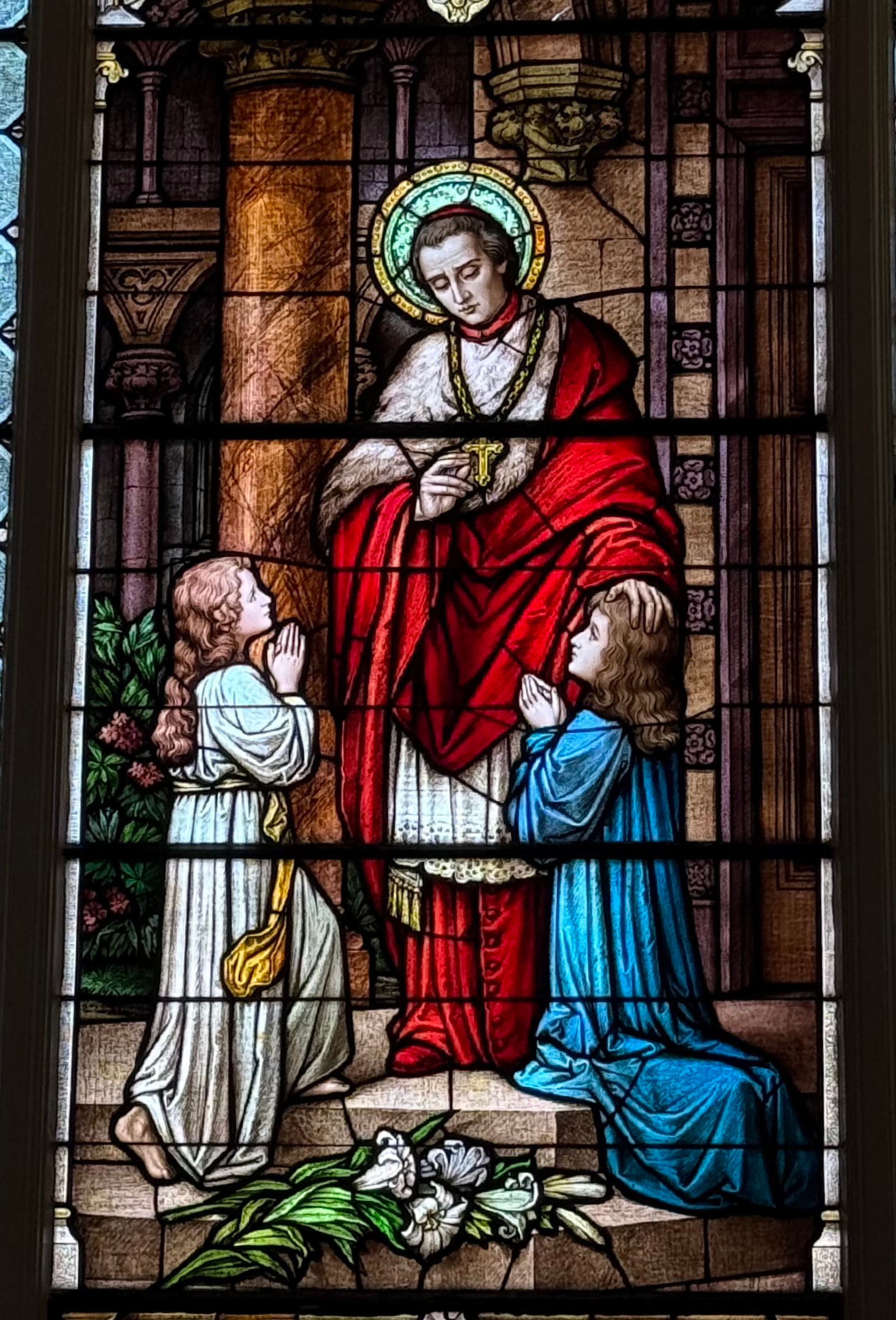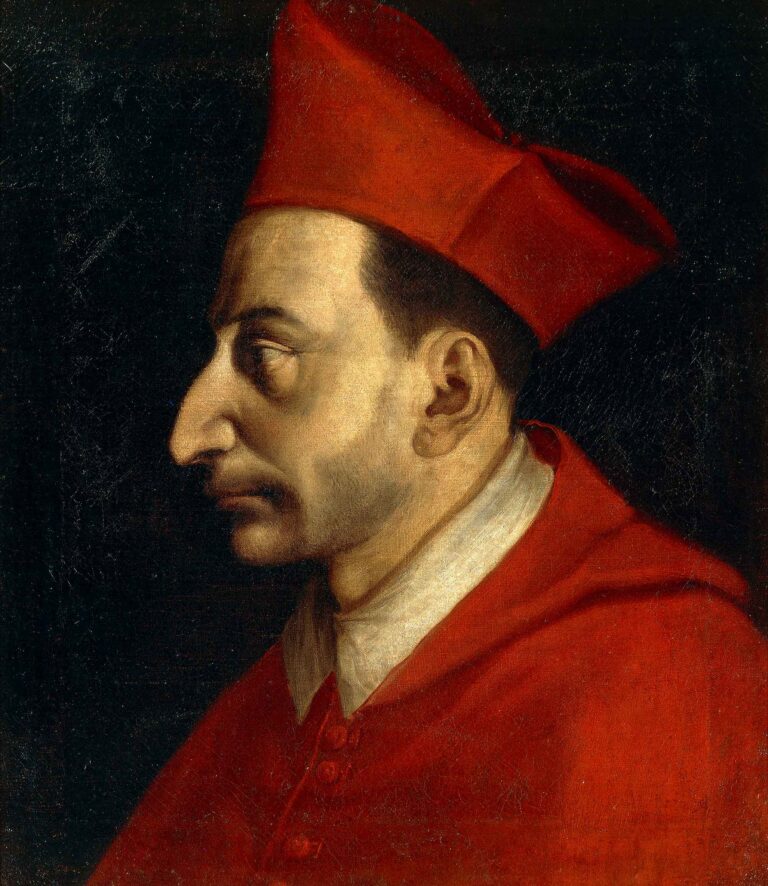
His concerns were with the training of the future clergy and with the religious education of the laity. That explains why he was depicted here as teaching two children. His place in a residential chapel would appear justified by his unselfish personal interest in the sick and the poor of Milan, notably during the Great Plague on 1576.

In honor of Rev. Lewis E. Eickhoff by Mr. and Mrs. Robert R. Imse


